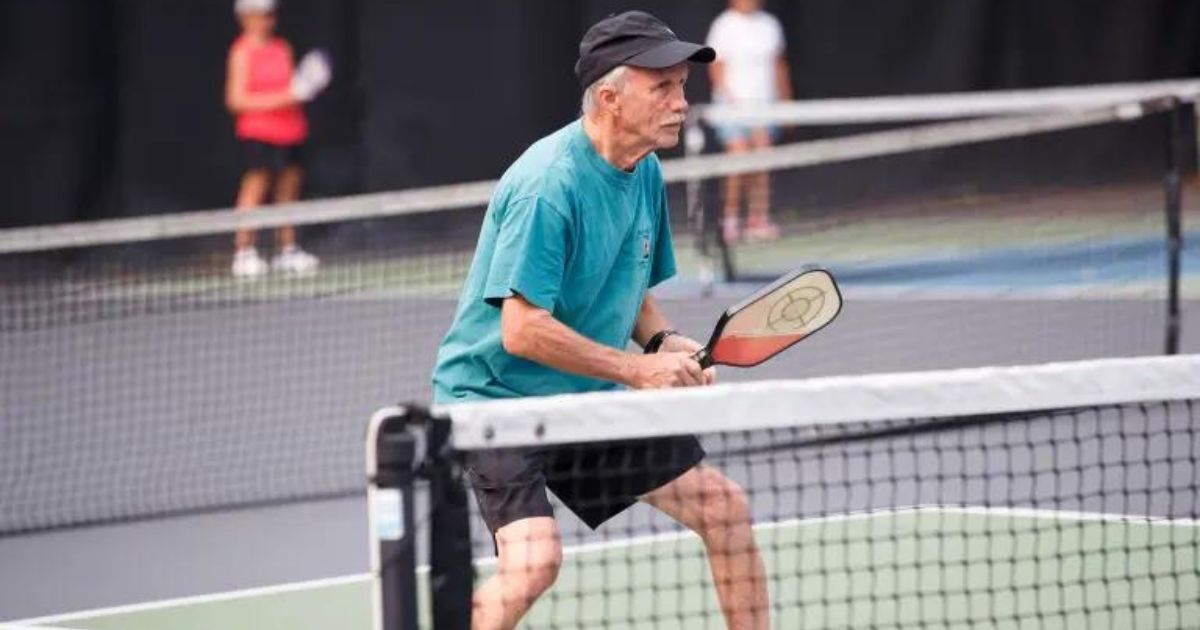In the realm of sports, pickleball has emerged as more than just a recreational activity for seniors; it’s become a potent elixir for mental health. A recent survey conducted by Carewell, a North Carolina-based company supporting caregivers, sheds light on the profound impact of pickleball on seniors’ psychological well-being.
Pickleball Has Surprising Influence on Seniors’ Mental Health
Carewell’s survey, encompassing insights from 1,000 Americans, delves into the mental health benefits reported by seniors engaging in pickleball. Almost 70% of older adults revealed reduced stress and anxiety after partaking in this fast-growing sport. Additionally, 64% described the game as “uplifting,” highlighting its positive emotional impact.
James Campigotto, one of the researchers for Carewell, emphasized the survey’s role in uncovering a societal shift in attitudes toward aging, fitness, and family dynamics. “The data proves the multifaceted impact of this sport on the well-being of seniors,” Campigotto stated, underlining the broader implications of pickleball beyond physical exercise.
The Community Connection of Pickleball
Half of the surveyed seniors expressed a deep appreciation for the sense of community fostered by pickleball. Beyond the competitive spirit on the court, this aspect of the sport contributes significantly to seniors’ overall well-being. Moreover, one in three participants reported enhanced cognition and increased self-esteem, showcasing the holistic benefits of engaging in pickleball.
The survey also highlighted the intergenerational appeal of pickleball, with approximately 36% of Gen Z and millennial players utilizing physical activities like pickleball as a means to connect with their older family members.
This challenges prevailing narratives about digital disconnection, emphasizing the power of shared experiences in strengthening family bonds.
The Rise of Pickleball and Its Adaptability
Pickleball, a paddle sport originating in 1965, has witnessed a surge in popularity, becoming the fastest-growing sport in the nation.
Laura Gainor, founder of Vossberg Gainor and Pickleball in the Sun, attributes this rapid growth to the pandemic, as individuals sought outdoor activities allowing both recreation and social interaction. Gainor emphasizes that pickleball’s adaptability and accessibility make it an appealing choice for people of all ages.
Kristina Centenari, a certified fitness coach, notes that pickleball’s smaller court and lighter-weight equipment make it a more approachable sport for seniors. The social element introduced by playing in doubles adds to its appeal, providing a balance of physical activity and social engagement.
Safety Tips for Seniors Engaging in Pickleball
As pickleball gains popularity, the sport brings the potential for injuries. Laura Gainor stresses the importance of wearing proper court shoes to support lateral movements on the court, cautioning against the misconception of using everyday running shoes.
Arnold Poblete, a certified pickleball instructor, recommends a proper warm-up, dynamic bodyweight movements, and understanding one’s limitations.
Kristina Centenari advocates for seniors to incorporate strength training and mobility exercises into their routines. As muscle tone declines with age, resistance training has been proven to reduce the risk of sports injuries, offering additional support for the physical demands of pickleball.
The Pickleball Paradigm for Senior Well-being
In conclusion, pickleball is transcending its identity as a sport and becoming a wellness catalyst for seniors. The survey findings affirm its positive impact on mental health, fostering community, and intergenerational connections.
As more seniors embrace this dynamic sport, the need for informed play, proper equipment, and physical preparedness becomes paramount. Pickleball, with its adaptability and inclusive nature, is not just a game; it’s a vibrant thread weaving through the fabric of senior well-being.








Leave a Reply
You must be logged in to post a comment.